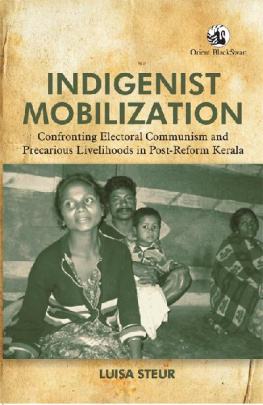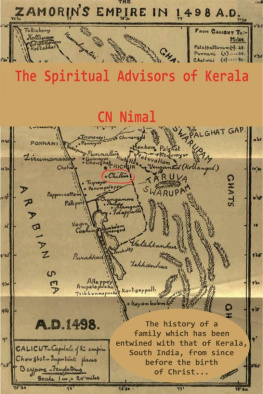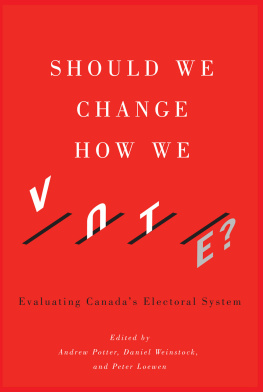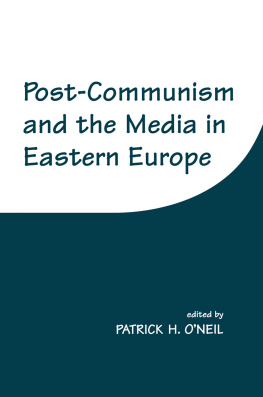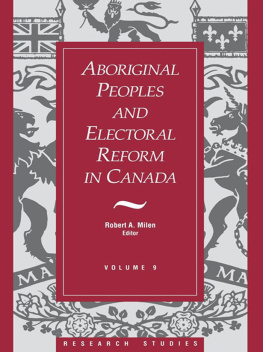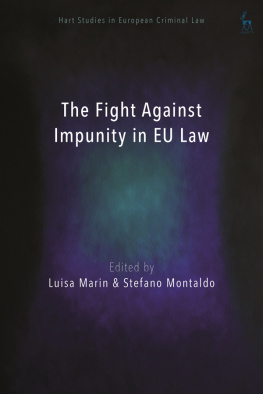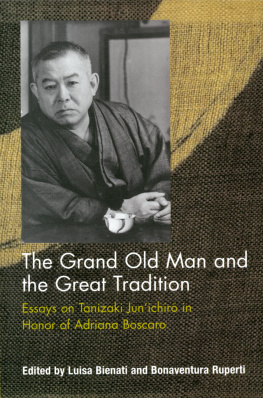INDIGENIST MOBILIZATION
For our entire range of books please use search strings " Orient BlackSwan ", " Universities Press India " and " Permanent Black " in store.
INDIGENIST MOBILIZATION
Confronting Electoral Communism and
Precarious Livelihoods in Post-reform Kerala
LUISA STEUR
INDIGENIST MOBILIZATION: CONFRONTING ELECTORAL COMMUNISM AND PRECARIOUS LIVELIHOODS IN POST-REFORM KERALA
Orient Blackswan Private Limited
Registered Office
3-6-752 Himayatnagar, Hyderabad 500 029 (A.P.), INDIA
e-mail:
Other Offices
Bengaluru, Bhopal, Chennai, Guwahati, Hyderabad, Jaipur,
Kolkata, Lucknow, Mumbai, New Delhi, Noida, Patna, Vijayawada
2017 Luisa Steur
This edition was published by arrangement with Berghahn Books Inc.
Maps by:
Sangam Books (India) Private Limited, Hyderabad
First published in India by
Orient Blackswan Private Limited 2017
eISBN 978-93-86689-07-8
For sale only in India, Pakistan, Nepal, Bhutan, Bangladesh, Sri Lanka and the Maldives.
e-edition:First Published 2017
ePUB Conversion: .
All rights reserved. No part of this publication may be reproduced, distributed, or transmitted in any form or by any means, including photocopying, recording, or other electronic or mechanical methods, without the prior written permission of the publisher, except in the case of brief quotations embodied in critical reviews and certain other noncommercial uses permitted by copyright law. For permission requests write to the publisher.
The following are applicable for the map(s) in this book:
Government of India, Copyright 2017.
The responsibility for the correctness of internal details rests with the publisher. The territorial waters of India extend into the sea to a distance of twelve nautical miles measured from the appropriate base line. The external boundaries of India agree with the Record/Master Copy certified by the Survey of India.
The spellings of names have been taken from various sources.
Contents
List of Figures
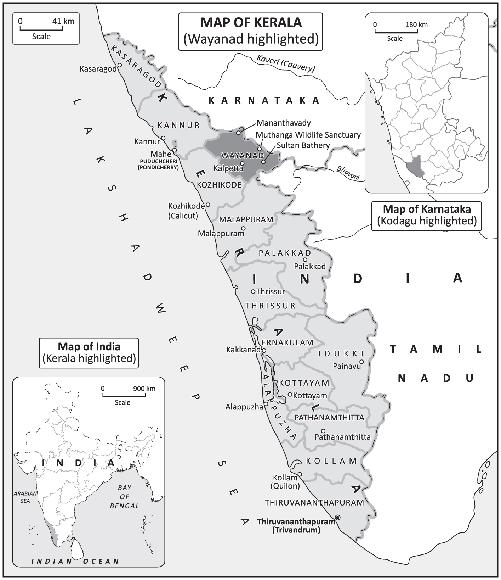
Acknowledgments
This book would have been meaningless without the solidarity, generosity and intellectual confrontation from friends spread out over many places. I thank all those who took me into their lives and politics in Kerala: Jain Vasudevan and his family, thanks to whom I have come to admire the lived, genuine history of Communist struggle in Kerala; Sunny Kapicadu, whose radical courage and charisma, combined with gentle friendship, always makes me feel the pulse of history; I. Ambika, Meera Moorkoth, and K. C. Bindu, who were all three so much more than translatorsthrough sharing their own experiences, struggles, and insights they also provided deep companionship and made me better understand some of the manifold gendered oppressions that exist in Kerala (and beyond). I also thank the people of Kottamurade, who shared their time with me and taught me that some of Keralas most piercing commentators can be found among people without any formal education.
Without an academic community beyond Kerala, however, what I learned would not have materialized into book form. I thank all my mentors (especially Judit Bodnar, Prem Kuman Rajaram, and Jan Breman) and my former fellow students at the Central European University (CEU) in Budapest, from where I undertook the research and much of the writing that this book is based on. I feel lucky to have been part of an academic community where the drive to gain radical, politically-relevant historical insight was so present. Apart from CEU, there have been various other academic communities where I have been made to feel at home and that I have learned from, in particular Philip McMichael and his students at Cornell University, Crispin Bates and his students at the Center for South Asian Studies (Edinburgh), and fellow Marxist anthropologists of the Anthropology and Political Economy Society (APES) and the IUAES Commission for Global Transformation and Marxian Anthropology that we later founded. My ties to Dalit and Adivasi activism in India were strengthened further through my postdoctoral engagement with David Mosses Caste Out of Development research project. It is thanks to my assistant professorship at the University of Copenhagen that I finally, however, managed to complete this book. Throughout all this time, my managing editorship of Focaal: Journal of Global and Historical Anthropology provided me with a steady intellectual heartbeat and thanks to coeditorswith comradeship. Perhaps, then, it is here most of all that I should mention the companionship and radical inspiration I got from Don Kalb.
Finally, I thank my parents and siblings who have helped me out in many ways without which this book would not have come about. I also am deeply grateful to Jean Blaylock, who has always been generous and supportive towards me and my projects (including this book), and to Carmel Christy, with whom, even in difficult times, I always rediscover a more alive version of myself. I also thank Sylvain Ropital, my love, who shares with me the greatest joy: our son Tristan Steur-Ropital.
I dedicate this book to the memory of Connie Steur (19572014), my aunt who was a homecare nurse in the Netherlands and who worked for several years among Baka (indigenous) communities in Western Africa. Her joyful dedication to the happiness of those around her and to a more just and beautiful world was unique, and she is very much missed.
Introduction
Research and Activism in, on, and
Beyond a Capitalist World System

In January 2003, a large group of landless people gathered in an area of depleted forestland, the Muthanga Wildlife Sanctuary, in one of the hilly northern districts of Kerala, and started settling there. Most of them had taken everything they owned with them, but that just meant a few pots to cook in and some plastic bags with clothes and memorabilia. They were planning to claim a piece of land to call their own at Muthanga, for despite many government promises that agricultural workers were to own at least the plot of land their homes stood on, this had never materialized for them. At this event, their claims were not, however, phrased in terms of their poverty or the governments broken promises to agricultural workers: they were presented in the language of indigenous, or Adivasi , rights, the aim being to reclaim the land and lifestyle of their ancestors. The Adivasi Gothra Maha Sabha (AGMS), the movement leading the land occupation, did not give out statements about the need for these people to become emancipated, full citizens of Keralaeven less so about the need for them to be uplifted into the mainstream of society. Their statements were about autonomy and cultural pride. One and a half months later, however, the occupiers were evicted from the area by a massive police force that left little intact of the new life participants had hoped for.
When I first arrived in Kerala in August of 2003, it was not only the participants in the occupation who were still deeply impressed by the events: the whole of politically active Kerala (which is almost to say the whole of Kerala) was still debating the issues it had raised. Was Kerala, a society that prided itself on being progressive, that had seen the most radical land reforms in the whole of India, where everyone had the chance to a decent wage, education, and healthcare, losing out to globalization? Was it corrupted and no longer supportive of general well-being? Or had its model of development never been supportive of this group of people, of Adivasis? Was identity politics then the way forwardwas it a good thing? Was it dangerous?

